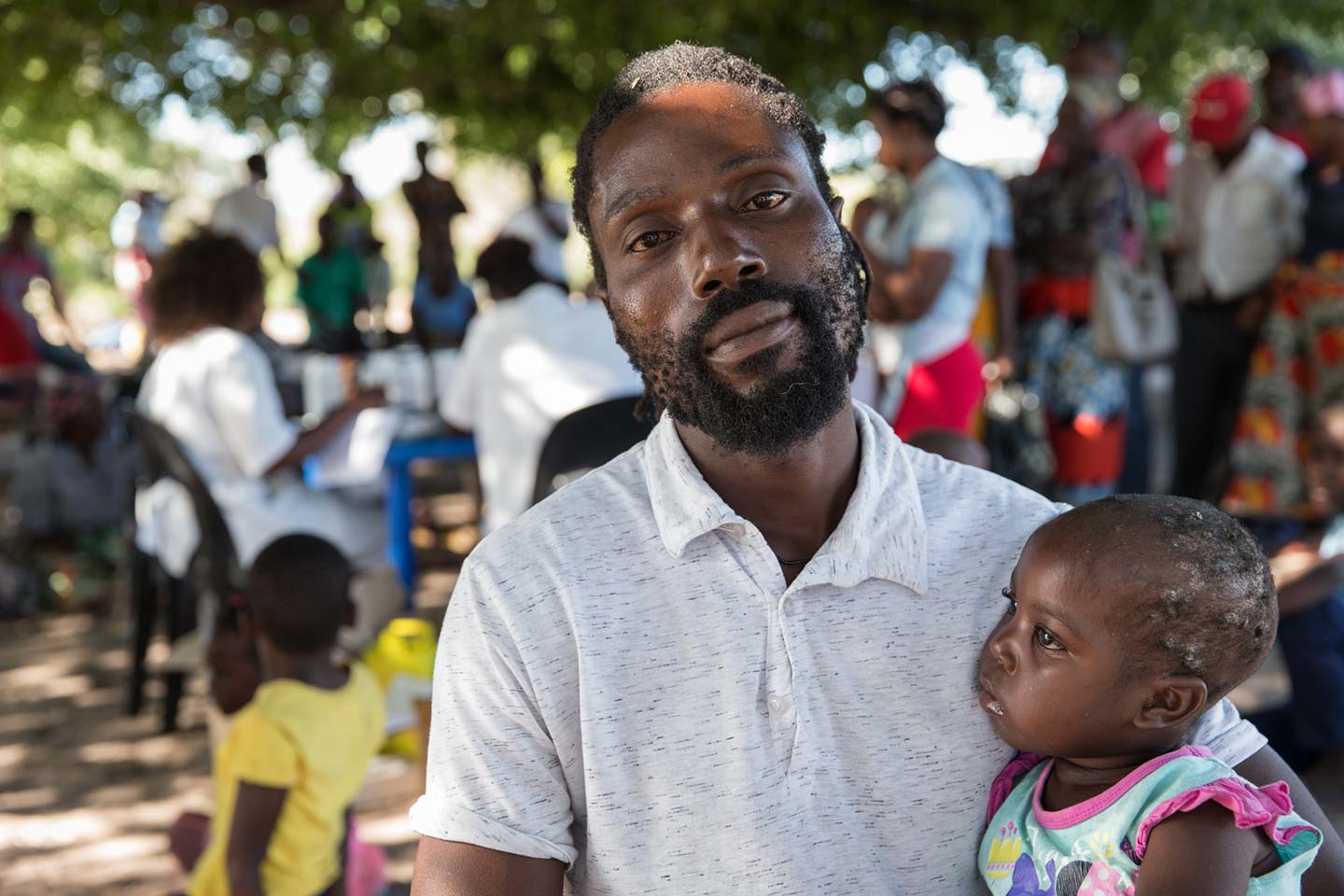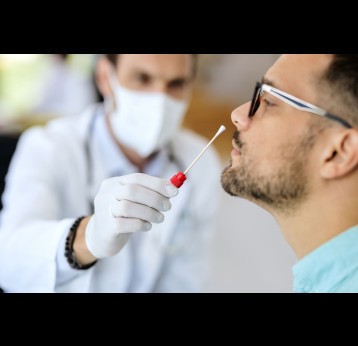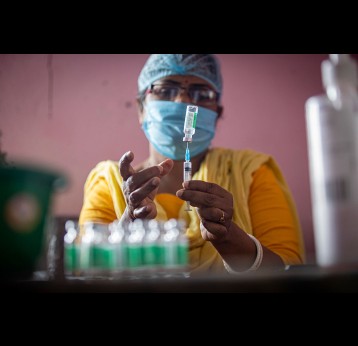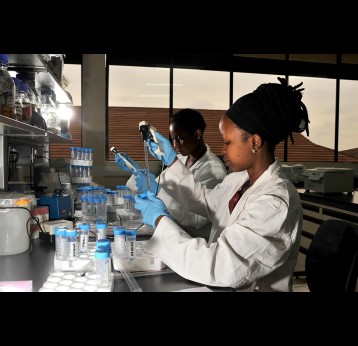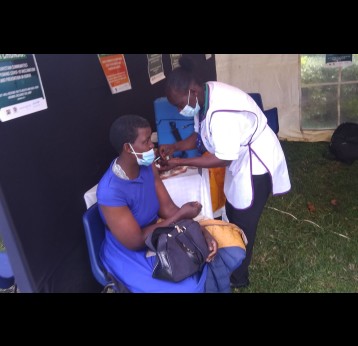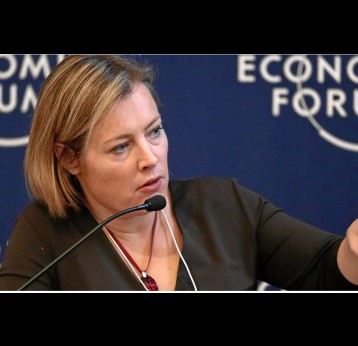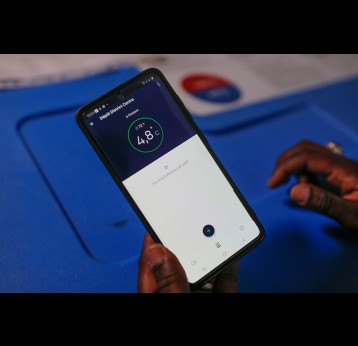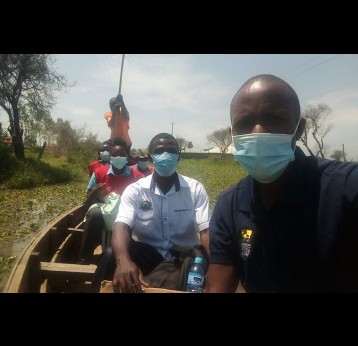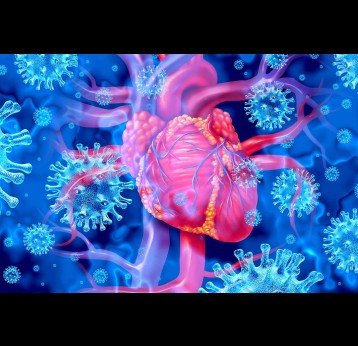Agencies call for joint effort to safely deliver routine immunization and proceed with vaccination campaigns against deadly vaccine-preventable diseases.
 |
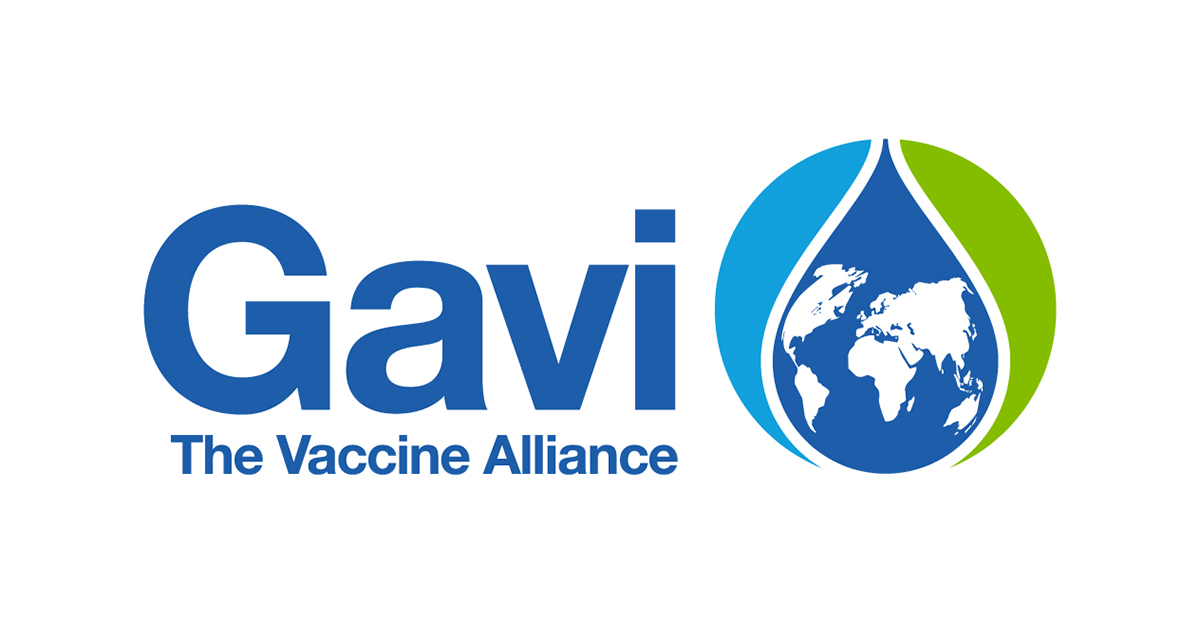
|

|
Geneva/New York, 22 May 2020 – COVID-19 is disrupting life-saving immunization services around the world, putting millions of children – in rich and poor countries alike – at risk of diseases like diphtheria, measles and polio. This stark warning comes from the World Health Organization (WHO), UNICEF, and Gavi, the Vaccine Alliance ahead of the Global Vaccine Summit on 4 June, at which world leaders will come together to help maintain immunization programmes and mitigate the impact of the pandemic in lower-income countries.
According to data collected by the WHO, UNICEF, Gavi and the Sabin Vaccine Institute, provision of routine immunization services is substantially hindered in at least 68 countries and is likely to affect approximately 80 million children under the age of one living in these countries.
ROUTINE IMMUNIZATION OF CHILDREN DISRUPTED
Since March 2020, routine childhood immunization services have been disrupted on a global scale that may be unprecedented since the inception of expanded programs on immunization (EPI) in the 1970s. More than half (53%) of the 129 countries where data were available reported moderate-to-severe disruptions, or a total suspension of vaccination services during March-April 2020.
“Immunization is one of the most powerful and fundamental disease prevention tools in the history of public health,” said Dr Tedros Adhanom Ghebreyesus, WHO Director-General. “Disruption to immunization programmes from the COVID-19 pandemic threatens to unwind decades of progress against vaccine-preventable diseases like measles.”
“At the 4 June Global Vaccine Summit in London, donors will pledge their support to Gavi, the Vaccine Alliance, to sustain and accelerate this lifesaving work in some of the most vulnerable countries. From the bottom of my heart, I urge donors to fully fund the Alliance. These countries, these children especially, need vaccines, and they need Gavi.”
The reasons for disrupted services vary. Some parents are reluctant to leave home because of restrictions on movement, lack of information or because they fear infection with the COVID-19 virus. And many health workers are unavailable because of restrictions on travel, or redeployment to COVID response duties, as well as a lack of protective equipment.
“More children in more countries are now protected against more vaccine-preventable diseases than at any point in history,” said Dr. Seth Berkley, Gavi CEO. “Due to COVID-19 this immense progress is now under threat, risking the resurgence of diseases like measles and polio. Not only will maintaining immunization programmes prevent more outbreaks, it will also ensure we have the infrastructure we need to roll out an eventual COVID-19 vaccine on a global scale.”
Transport delays of vaccines are exacerbating the situation. UNICEF has reported a substantial delay in planned vaccine deliveries due to the lockdown measures and the ensuing decline in commercial flights and limited availability of charters. To help mitigate this, UNICEF is appealing to governments, the private sector, the airline industry, and others, to free up freight space at an affordable cost for these life-saving vaccines. Gavi recently signed an agreement with UNICEF to provide advance funding to cover increased freight costs for delivery of vaccines, in light of the reduced number of commercial flights available for transport.
“We cannot let our fight against one disease come at the expense of long-term progress in our fight against other diseases,” said Henrietta Fore, UNICEF Executive Director. “We have effective vaccines against measles, polio and cholera. While circumstances may require us to temporarily pause some immunization efforts, these immunizations must restart as soon as possible, or we risk exchanging one deadly outbreak for another.”
Next week, WHO will issue new advice to countries on maintaining essential services during the pandemic, including recommendations on how to provide immunizations safely.
MASS IMMUNIZATION CAMPAIGNS TEMPORARILY DISRUPTED
Many countries have temporarily and justifiably suspended preventive mass vaccination campaigns against diseases like cholera, measles, meningitis, polio, tetanus, typhoid and yellow fever, due to risk of transmission and the need to maintain physical distancing during the early stages of the COVID-19 pandemic.
Measles and polio vaccination campaigns, in particular, have been badly hit, with measles campaigns suspended in 27 countries and polio campaigns put on hold in 38 countries. At least 24 million people in 21 Gavi-supported lower-income countries are at risk of missing out on vaccines against polio, measles, typhoid, yellow fever, cholera, rotavirus, HPV, meningitis A and rubella due to postponed campaigns and introductions of new vaccines.
In late March, concerned that mass gatherings for vaccination campaigns would enflame transmission of COVID-19, WHO recommended countries to temporarily suspend preventive campaigns while assessments of risk, and effective measures for reducing COVID virus transmission were established.
WHO has since monitored the situation and has now issued advice to help countries determine how and when to resume mass vaccination campaigns. The guidance notes that countries will need to make specific risk assessments based on the local dynamics of COVID-19 transmission, the health system capacities, and the public health benefit of conducting preventive and outbreak response vaccination campaigns.
Based on this guidance, and following growing concerns about increasing transmission of polio, the Global Polio Eradication Initiative (GPEI), is advising countries to start planning for the safe resumption of polio vaccination campaigns, especially in polio high-risk countries.
Despite the challenges, several countries are making special efforts to continue immunization.
Uganda is ensuring that immunization services continue along with other essential health services, even funding transportation to ensure outreach activities. And in Lao PDR, despite a national lockdown imposed in March, routine immunization in fixed sites continued with physical distancing measures in place.
Media contacts
-
Sabrina Sidhu, UNICEF New York
Mob: +19174761537
E-mail: ssidhu@unicef.org -
Diane Abad-Vergara, WHO
Mob: +41 (0)79 200 5878
E-mail: abadvergarad@who.int
COVID-19 related
How long after I get COVID-19 will I test negative?
Testing positive for COVID-19 – even without symptoms – can be disruptive to daily life, but how long should we expect to test positive for?
First published on 29 October 2021, updated on 13 September 2022
The COVAX Facility is seeking expressions of interest from the subject matter experts to join the COVAX Independent Product Group. The Independent Product Group (“IPG”) is established to provide scientific advice on COVID-19 vaccines and…
Q&A: Science ‘needs to listen to African voices’
Public speaking a lifelong skill for scientists. Drive behind research should come from grassroots. Science and art merge together in field of communication.
How did Kenya surpass its 2021 COVID-19 vaccination target?
Kenya was aiming to reach 10 million people with COVID-19 vaccines by the end of December 2021. Thanks to a clear strategy, COVAX support and the hard work of thousands of health workers, they reached their target.
Could mRNA vaccines protect against HIV?
Moderna has begun a trial with an experimental HIV vaccine based on the same technology underpinning its COVID-19 vaccine.
Financial Times journalist and author Gillian Tett discusses her new book, Anthro-Vision: How Anthropology Can Explain Business and Life.
The Equity Agenda in Fourth Industrial Revolution Healthcare Technology
The COVID-19 pandemic has demonstrated the power of innovative Fourth Industrial Revolution (4IR) technologies in healthcare systems. Unless these technologies are designed with equity at their core, we risk leaving some people even further…
Faced with the many disease threats posed by repeated, calamitous floods, Nyando in western Kenya needs its health services more than ever. But longer-term resiliency will require more than just a shot in the arm.
Myocarditis: COVID-19 is a much bigger risk to the heart than vaccination
Myocarditis following COVID-19 vaccination is rare, and the risk is much smaller than the risks of cardiac injury linked to COVID-19 itself.

